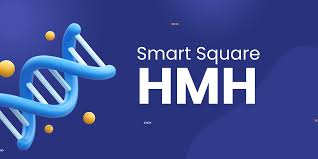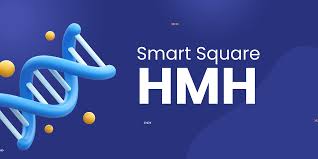Wellhealthorganic.com:vitamin-e-health-benefits-and-nutritional-sources
Wellhealthorganic.com:vitamin-e-health-benefits-and-nutritional-sources: An extensive gamut of health benefits is offered by the potent antioxidant named Vitamin E, which includes safeguarding your skin from the damaging effects of UV rays and bolstering your immune system. It happens to be an indispensable nutrient that can conveniently find its place in your diet via diverse varieties of food items as well as supplements. This piece shall delve into how Vitamin E promotes fitness and nourishment along with expounding on its most nutritious sources available currently.
Might it be plausible to inquire about the definition of Vitamin E? Is there perhaps a more comprehensive understanding as to what precisely this vitamin is and how it functions within our bodies? Could one possibly discern its importance in relation to other vitamins or nutrients that are essential for wellbeing, especially considering the numerous benefits associated with consuming foods rich in Vitamin E?
The Importance of Vitamin E in Preventing Oxidative Damage
Within the human body, there exists a collective of eight dissolvable compounds that seek to prevent oxidative damage known as Vitamin E. These substances are composed of four tocopherols (alpha-, beta-, gamma- and delta-) alongside an additional quartet identified as tocotrienols (alpha-, beta ,gamma- &delta). Alpha-tocopherol comprises the most dynamic variant within this group.
Adequate levels of Vitamin E are fundamental for optimal performance across multiple bodily mechanisms, encompassing but not limited to:
The preservation of cellular integrity against oxidative harm is a fundamental process that necessitates great attention. A means of achieving this is by limiting the accumulation and spread of free radicals, which can lead to substantial injury within cells if unchecked. This endeavor involves multiple defense mechanisms including enzymatic pathways and antioxidants, which function interdependently in protecting the cell’s essential components from oxidation-induced degeneration, ultimately contributing towards maintaining homeostasis within biological systems.
The Importance of Gene Expression Regulation and Immune System Fortification for Optimal Health
Manipulating the regulation of gene expression is a crucial component in understanding how organisms function. The complexity involved in this process can be seen through various transcriptional and post-transcriptional mechanisms that govern DNA-related functions, such as replication and translation. It requires an intricate balance between genetic factors, environmental stimuli, and epigenetic modifications to achieve proper regulatory control over gene activity in living cells. This type of regulation enables cells to adapt efficiently by changing the amount or timing at which proteins are produced based on internal signaling pathways or external cues from their surroundings.
Therefore, studying these complexities helps researchers understand fundamental biological processes compatible with developing treatments for complex diseases where normal levels of protein production have been disrupted due to aberrant changes within our genes’ networks resulting from mutations leading to disease pathogenesis; thus enabling personalized therapies tailored towards specific genotype variations unique only unto ourselves–an exciting prospect indeed!
Fortifying the body’s natural defenses is a paramount concern in maintaining overall health. Bolstering one’s immune system can prove to be vital, as it serves as an integral component of bodily defense against infectious agents and other threats to wellbeing. Thus, implementing strategies that aid in strengthening this crucial physiological mechanism should not be overlooked or underestimated lest we compromise our ability to stave off external attacks on our internal biological systems.
The Vitality of Vitamin E for Skin, Eye, Brain, and Immune Health
Sustaining the well-being of both one’s epidermis and ocular faculties is paramount to overall physical wellness. The upkeep of these integral components parallels a greater appreciation for maintaining optimal health, as healthy skin and clear vision are vital indicators in monitoring an individual’s physiological equilibrium.
Enhancing cerebral performance and minimizing the likelihood of cognitive degeneration are two objectives that many individuals seek to achieve.
The utilization of Vitamin E can bring about positive impacts on one’s health. The advantageous results include a decrease in the risk of coronary illness, reduced instances of dementia and enhanced immune function. Furthermore, it serves as an antioxidant which helps protect cells from damages brought by free radicals within the body. This compound has been shown to play important roles in gene expression that directly affects immunity levels and metabolism rates among other bodily functions making it integral for maintaining overall well-being throughout all stages of life.
The Protective Role of Vitamin E as an Antioxidant
Defends the body against oxidative destruction. Counteracts harmful effects of oxidation. Forms a barrier that shields from reactive oxygen species. Safeguards cellular components by deterring progression of destructive reactions caused by oxidation. Shelters tissues and organs from free radicals through its antioxidant properties.
In the capacity of an oxidant, vitamin E aids in shielding your cells from oxidative harm that results from unstable molecules known as free radicals. These unpredictable atoms can inflict damage to cells and resultantly augment persistent illnesses like cancer, cardiovascular disease, Alzheimer’s ailment among others.
Minimizing the likelihood of cardiovascular illness is plausible
Studies have demonstrated that Vitamin E can lower the likelihood of cardiovascular issues by impeding the oxidation process of LDL cholesterol. This is particularly relevant since oxidized low-density lipoprotein (LDL) cholesterols are capable of constricting arteries through plaque buildup which raises one’s susceptibility to cardiac arrest or cerebrovascular accident.
It is within the realm of possibility to bolster one’s immune system. One can take measures that will aid in sustaining and reinforcing her/his body’s overall health defenses by introducing various foods, vitamins, minerals or supplements into their daily diet regimens. The practice of keeping up with regular exercise routines also plays an instrumental role in supporting a person’s immune function which helps stave off infections and illnesses more effectively than those who do not possess strong defense mechanisms against invading foreign bodies.
Supporting the immune system, Vitamin E advances the generation of immune cells and intensifies their performance. Besides this, it diminishes inflammation that can lead to an enfeebled immunological response.
The Skin, Brain, and Anti-Aging Benefits of Vitamin E
Enhances the well-being of your dermal layers. Augments and upgrades the health status of one’s integumentary system. Boosts collagen production, aiding in rebuilding damaged skin tissues as well as preventing wrinkles from forming prematurely. Increases hydration levels within epidermal cells resulting to a plump appearance devoid of dryness or flakiness. Promotes radiance through exfoliation- shedding off dead skin cells that hitherto give an often-dull complexion; revealing soft, smooth-textured skin with a lustrous glow underneath it all!
Our service is having temporary outage. If the issue persists, contact support and include the following error message (Error: Request failed with status code 429)
Diminishes the possibility of deteriorating cognitive function. Decreases the likelihood of a decline in mental faculties with age. Lowers the chance that one’s intellectual abilities will decrease over time. Minimizes instances where individuals experience degeneration within their cerebral capacity due to aging or other factors beyond their control. Reduces susceptibility to declines in cognition as well as related conditions and disorders, such as dementia and Alzheimer’s disease, which may arise later on in life without preventative measures taken beforehand.
The Best Nutritional Sources of Vitamin E
Numerous research studies have demonstrated that consumption of Vitamin E can aid in alleviating the risk of cognitive decline and dementia among senior citizens. Furthermore, it has been revealed to optimize brain functionality amongst young adults as well.
In relation to the acquisition of vitamin E, there are multiple sources from which one can attain it. These resources include fruits and vegetables such as spinach or kiwi. Additionally, nuts like almonds and hazelnuts contain this nutrient in considerable amounts whilst fortified cereals offer a similar proposition towards its intake level augmentation . Meat products including beef liver also provide an avenue for acquiring adequate levels of Vitamin E that is paramount to meeting recommended daily dietary requirements.
There exist certain nutritional sources which are considered to be the most optimal providers of vitamin E.
Nuts and Seeds
A concentration of vitamin E is present in nuts and seeds, particularly almonds, sunflower seeds, and hazelnuts. One serving size comprising an ounce of almonds contains 7.4 milligrams of vitamin E which amounts to approximately fifty percent of the recommended daily intake for adults.
Leafy Greens
Vegetables of the verdant variety, including spinach and kale, also serve as commendable reservoirs for vitamin E. By consuming a cupful of cooked spinach consequentially 3.7 milligrams (mg) worth of this nutrient can be obtained while one serving size comprising cooked kale provides only about 1.1 mg in contrast to that amount gleaned from an equivalent quantity composed purely of its rival green veggie counterpart – Spinacia oleracea’s tender leaves.
Vegetable Oils
Nourishing oils derived from vegetables such as wheat germ, sunflower and safflower exhibit a high vitamin E content. More specifically, ingesting just one tablespoon of wheat germ oil will deliver an impressive 20.3 mg amount of this essential nutrient that surpasses the suggested daily value for adults.
Foods that have been enhanced with additional nutrients are referred to as fortified foods. Such nutrient additions may be vitamins, minerals or other compounds necessary for bodily functions. Fortification is a common method for reducing the incidence of nutritional deficiencies within populations who might not otherwise consume such vital micronutrients due to personal preference, economic limitations or geographical location constraints. Examples of commonly used fortifications include vitamin D in milk and iodine in salt which promote healthy bone growth and prevent cognitive impairment respectively when regularly consumed at recommended levels by individuals from all walks of life regardless ethnicity or socioeconomic status among others factors influencing dietary habits.
A multitude of breakfast cereals and various food products are enriched with the vital nutrient, vitamin E. For utmost assurance that your chosen product comprises an ample amount of this essential element, it is advisable to scrutinize its label attentively prior to purchase.
Conclusion
Vitamin E, a crucial component in maintaining optimal health and well-being provides a vast array of benefits. It is imperative to augment your diet with vitamin E-rich foods that are abundant with this indispensable nutrient. Excellent sources include leafy greens, fortified foods, nuts and seeds as well as vegetable oils. By integrating these nourishing options into your daily food intake you fortify the stability of cells against oxidative trauma while reducing susceptibility towards cardiac disease thereby promoting immunity maintenance whilst enhancing skin quality ultimately lowering cognitive decline risks all around leading better hale state-of-mind.
Also, Read Wellhealthorganic.com:amazing-beauty-tips-of-ice-cube-will-make-you-beautiful-and-young.


